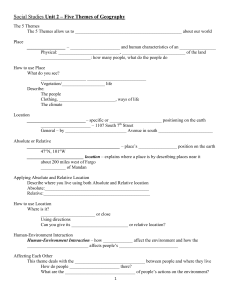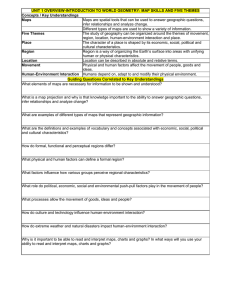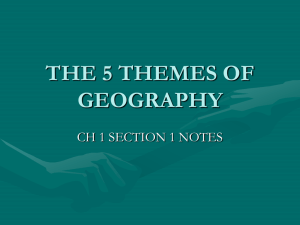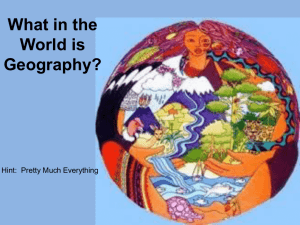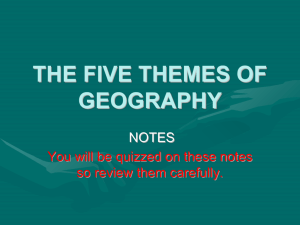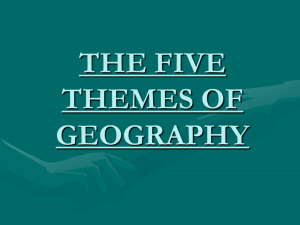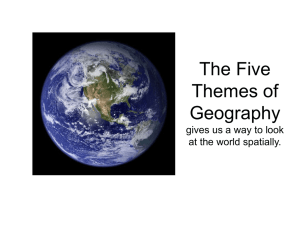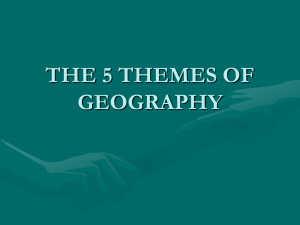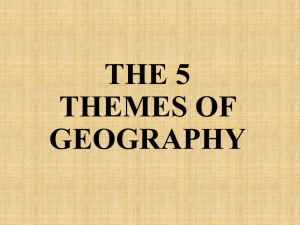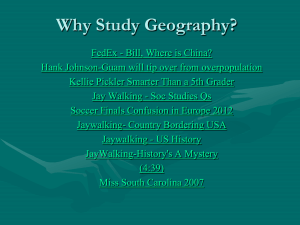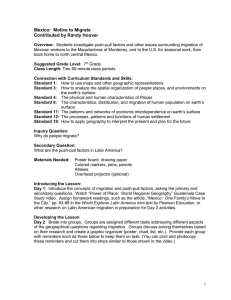Social Studies Unit 2 – Five Themes of Geography
advertisement
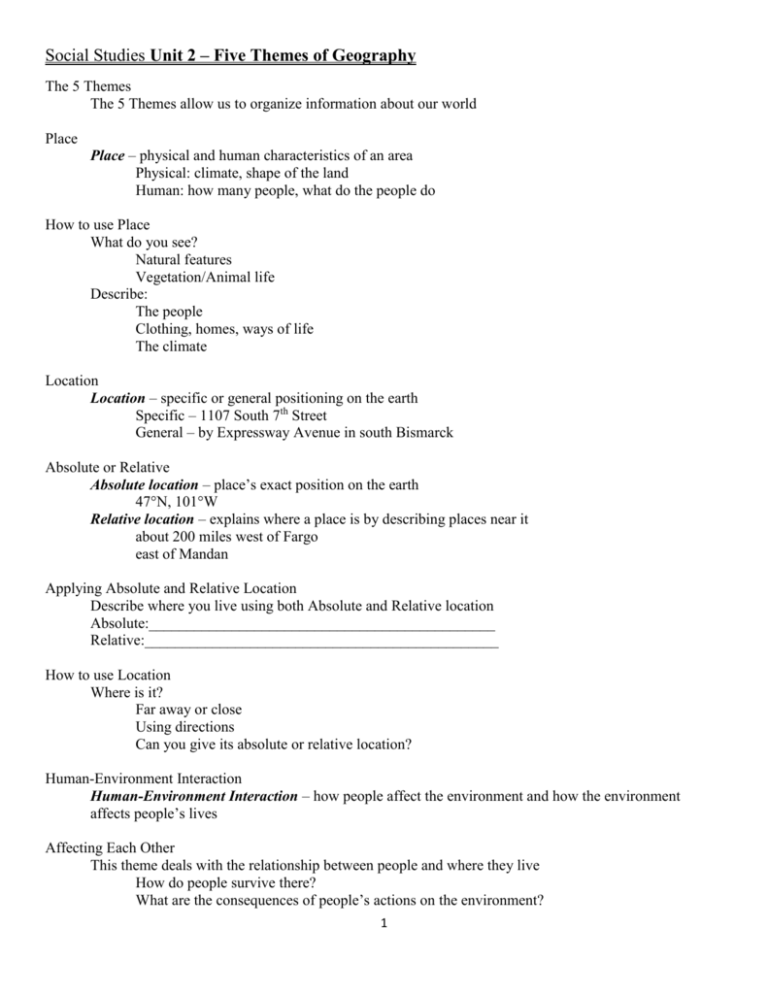
Social Studies Unit 2 – Five Themes of Geography The 5 Themes The 5 Themes allow us to organize information about our world Place Place – physical and human characteristics of an area Physical: climate, shape of the land Human: how many people, what do the people do How to use Place What do you see? Natural features Vegetation/Animal life Describe: The people Clothing, homes, ways of life The climate Location Location – specific or general positioning on the earth Specific – 1107 South 7th Street General – by Expressway Avenue in south Bismarck Absolute or Relative Absolute location – place’s exact position on the earth 47°N, 101°W Relative location – explains where a place is by describing places near it about 200 miles west of Fargo east of Mandan Applying Absolute and Relative Location Describe where you live using both Absolute and Relative location Absolute:______________________________________________ Relative:_______________________________________________ How to use Location Where is it? Far away or close Using directions Can you give its absolute or relative location? Human-Environment Interaction Human-Environment Interaction – how people affect the environment and how the environment affects people’s lives Affecting Each Other This theme deals with the relationship between people and where they live How do people survive there? What are the consequences of people’s actions on the environment? 1 How to use Human-Environment Interaction Effects of humans: How are people using the land? What have people built on the land? Effects of the environment: How has the weather or climate affected life here? Movement Movement – the way people, ideas, and goods travel from place to place Movement of People Population – total number of people in a given area Populations change as people move from place to place Different means of transportation allow people to move Movement of People – The World’s Population The planet’s population has been growing exponentially 1960 – 3 billion 2000 – 6 billion Now – over 7 billion 2050 – 10 billion? Movement of People – Population Clock Today’s approximate population:___________________________________ *Approximate population on ________(Date):________________________ Movement of People – Migration & Immigration Migration – moving from one place to another Migrants – people who do this Immigration – moving from one country to another Immigrants – people who do this Movement of People – Why People Migrate “Push-Pull” theory – describes why people migrate; people migrate because things in their lives “push” them to leave, and certain things in a new place “pull” them Movement of People – “Push-Pull” Theory at Work PUSH PULL __________________________ ___________________________ __________________________ ___________________________ What other “Push-Pull” factors can you think of? _____________________________________________________________________ Movement of Ideas As people move, they bring their own ideas and culture to their new home Culture – language, religious beliefs, values, customs, and other ways of life shared by a group of people 2 Movement of Goods People must obtain goods that they do not have in their natural environment Export – to sell to another place Import – to buy from another place How to use Movement People: Where and why are people moving? How are they getting there? Ideas: How is culture represented here? Goods: What do the people need to import or export here? Region Region – areas of the world that have common characteristics Region – what’s in common? Places can be grouped together in many ways Landscape or Climate Language Population Urban – having to do with cities Rural – having to do with the countryside Region – More than one way to classify North Dakota could be classified as part of the Midwestern U.S. region geographically Or it could be classified with other states based upon population, culture, etc. How to use Region What types of characteristics does this place share with other areas? Is this place urban or rural? 3
